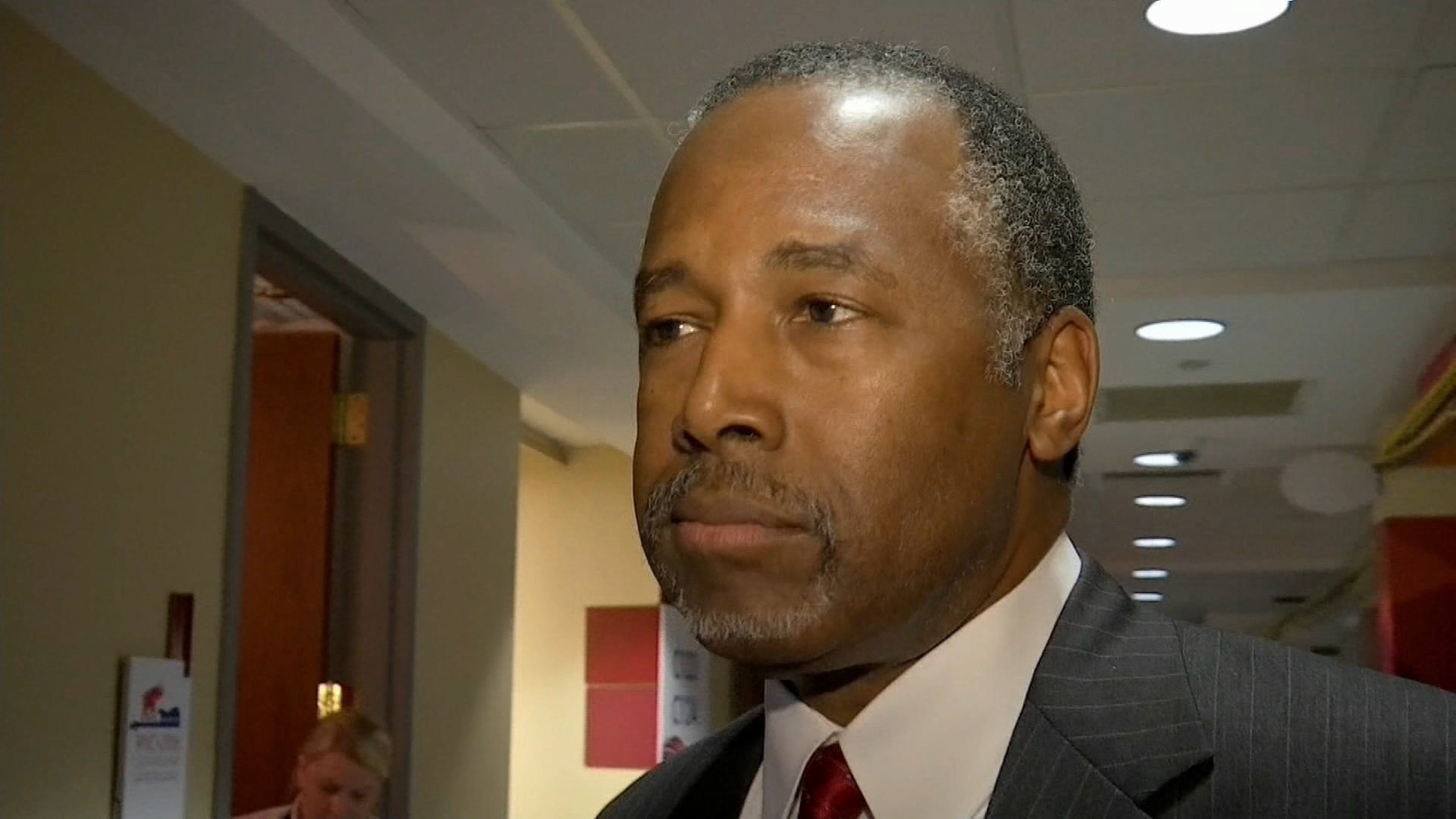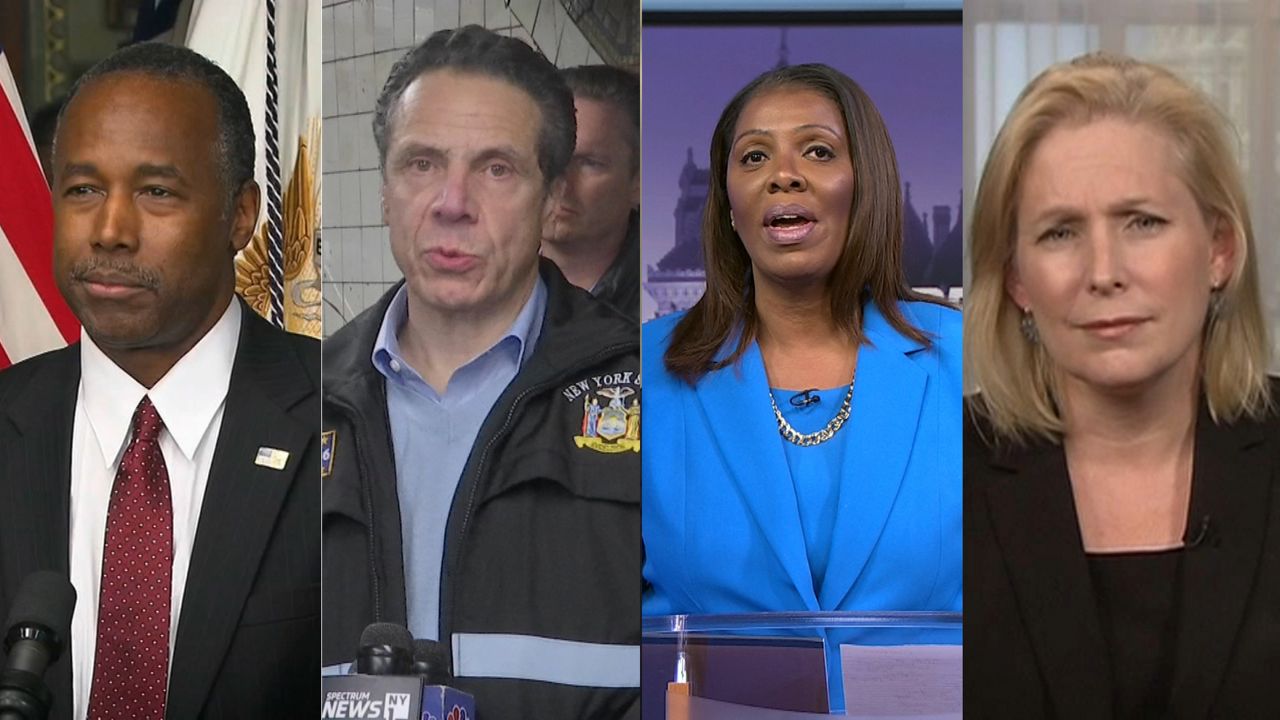2018 brought us quite a bit of drama in New York politics: Political upsets and scandals and, arguably, a "Blue Wave."
The new year may bring even more change, with a looming deadline for New York City public housing, as well as a potential wave of progressive laws.
Here are four big reason to pay attention in 2019:
NEW YORK CITY COULD LOSE CONTROL OF ITS PUBLIC HOUSING
More than 400,000 New York City residents may have a new landlord early in 2019 — and it could be Dr. Ben Carson.
Last week, Carson, the secretary of Housing and Urban Development (HUD), gave the city an ultimatum: Come up with a satisfactory plan to repair public housing by January 31, or face potential consequences. That deadline from the federal housing chief came with the threat to put the New York City Housing Authority (NYCHA), the largest public housing system in the United States, in "substantial default" — a technical move and the first step towards a federal takeover.
It was the first concrete sign that the federal government is weighing such a major move, called a receivership. HUD said it wants to see a NYCHA reform plan that establishes "tangible goals and milestones" by the end-of-January deadline, including increased oversight and ways to properly address lead and mold in housing units.

(Could Ben Carson, who has only briefly visited the largest public housing system in the United States, take control of NYCHA?)
Mayor Bill de Blasio recently released a new plan to fix NYCHA, trying to reverse decades of neglect. This one would pay for about $24 billion worth of repairs over the next 10 years. The housing authority says the need is $32 billion. HUD does not reference the plan, dubbed "NYCHA 2.0," in the letter.
Between now and the end of January, look to see if the city, HUD, and the U.S. Attorney's Office figure out a repair plan they can all accept.
NEW YORK COULD PASS A WAVE OF PROGRESSIVE LEGISLATION
Here are some of the legislative changes New Yorkers could see at some point in 2019:
- Legalized recreational marijuana
- Early voting
With Democrats set to be in control of the governor's office and both houses of the New York state legislature in January, some of the longstanding items on the progressive wish list may pass into law. Marijuana is likely to be legalized in 2019, with Democratic leaders in the state Senate and Assembly supporting it and Gov. Andrew Cuomo ending his resistance. It's not clear how pot would be regulated or where the revenue would go, but Democrats have overwhelmingly stated their support for legalization in recent years.
Voting reform has been described as "low-hanging fruit" for the Democratic Party and could pass as early as January. The demographics of New York state greatly favor Democrats when it comes to voter registration, roughly 3 to 1. Reforms that make it easier for more people to vote have previously been blocked by Senate Republican incumbents, who usually benefit from lower turnout elections. With Democrats set to be in charge, though, lawmakers would almost definitely pass early voting, which is already available in many states, to allow people to cast their ballots in advance of Election Day by mail.
Ultimately, Cuomo could be the lynchpin in deciding what progressive laws will pass. In the past, he has often pointed to Senate Republicans blocking liberal priorities, but he will be under pressure to sign into law more than just the "low-hanging fruit" bills. In the new year, then, look to see what agenda items the governor sticks with.
(Earlier this week, Gov. Andrew Cuomo outlined a bevy of legislative items on the progressive wish lists as part of his 2019 agenda).
LETITIA JAMES MAY TAKE LEGAL ACTION AGAINST TRUMP
2019 will bring a new state attorney general, one who has put President Donald Trump on notice: she'll pursue every legal avenue to investigate him and his financial dealings.
But James has said she wants to go further, arguing for investigating:
- Whether Trump's business dealings violate the Constitution's emoluments clause, which bars gifts or payments from foreign states — an issue the current AG's office has said it's already looking into.
- The June 2016 meeting at Trump Tower between his team and a Russian attorney promising dirt on the Hillary Clinton campaign.
- Trump's real estate dealings, including possible tax fraud detailed in an exhaustive New York Times investigation.
In the new year, then, look to see if James follows through with her campaign promises.
A SENATOR AND A FORMER NYC MAYOR COULD BOTH LAUNCH PRESIDENTIAL CAMPAIGNS
The 2020 presidential election is a little less than two years away, but most candidates will have to decide in 2019 if they will jump into the race — and that includes a New York senator and a former mayor of New York City.
Sen. Kirsten Gillibrand said last month that she was considering running for president. Since she joined the Senate, the Albany-native has grown her influence and profile on Capitol Hill, such as spearheading efforts to reform sexual harassment policies in Washington. There have also been moments outside of New York and Washington, particularly during this midterm election cycle, when Gillibrand took to the road to help campaign for other Democrats and progressive candidates — often a sign a politician has national ambitions.
Also providing evidence he may be considering a run is former mayor Michael Bloomberg. Bloomberg has given hints for years that he may run for president, only to back out, but 2018 proved to be different. Bloomberg publicly announced in October that he was changing his party registration to Democrat — a sign, perhaps, that he thinks his best shot at victory is with a major party — and he poured $110 million into U.S. House of Representatives races on behalf of Democrats.
And he's been barnstorming the country, including a trip this month to Iowa, home to the first-in-the-nation nominating contest. Ostensibly, he was there to promote a new climate change documentary he helped fund. But he also attended events focused on renewable energy that had the feel of campaign stops, and had private meetings with top Iowa Democrats.
In interviews, he seems to be rehearsing his pitch to voters, and he told an interviewer he'd likely sell or put his business, Bloomberg L.P., into a blind trust if he won the White House. But first, he has to decide to take the leap, a call he says he'll make in the next couple of months — by which time Gillibrand may also announce her run.
-------
Looking for an easy way to learn about the issues affecting New York City and what local politicians are doing to solve them?
Listen to our "Off Topic/On Politics" podcast: Apple Podcasts | Google Play | Spotify | iHeartRadio | Stitcher | RSS




